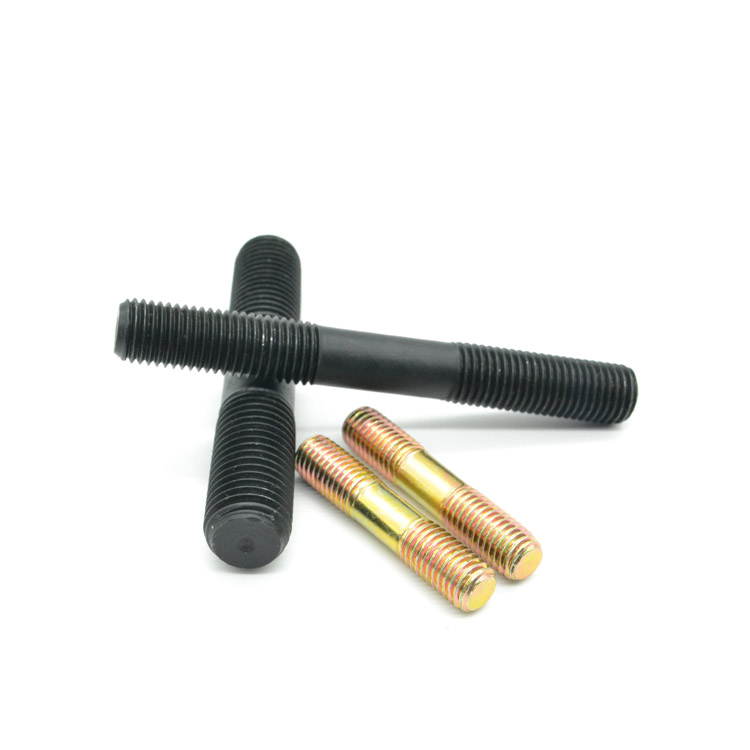m22 stud bolt factory
Nov . 13, 2024 15:59 Back to list
m22 stud bolt factory
Understanding M22 Stud Bolt Manufacturing Insights into Quality and Innovation
In the world of industrial fastening solutions, M22 stud bolts play a pivotal role, providing strength, reliability, and efficiency across various applications. As industries continue to evolve, the need for precision-engineered components has become more critical. This has led to the rise of specialized factories focused on the production and innovation of M22 stud bolts.
What are M22 Stud Bolts?
M22 stud bolts are heavy-duty fasteners characterized by their metric diameter of 22 millimeters. They are typically used in high-stress environments, including construction, automotive, and energy sectors. Known for their high tensile strength and durability, these bolts are often made from robust materials such as carbon steel, stainless steel, or alloy steel, depending on the specific requirements of the application.
The unique design of M22 stud bolts allows for efficient assembly and disassembly, making them ideal for applications where maintenance and repair are frequent. Their ability to withstand high loads and resist deformation makes them a preferred choice for engineers and manufacturers alike.
The Manufacturing Process
The production of M22 stud bolts involves several key steps, each of which contributes to the overall quality and performance of the final product.
1. Material Selection The first step in manufacturing high-quality stud bolts is the careful selection of raw materials. Factories typically source high-grade steel that meets international standards for strength and resilience. This material becomes the foundation upon which the bolt's integrity is built.
2. Forming The next stage involves shaping the raw material into the desired bolt form. This is often achieved through processes such as cold forging, where the metal is shaped at room temperature, enhancing its mechanical properties. This method not only ensures precise dimensions but also increases the strength of the bolt due to work hardening.
m22 stud bolt factory

3. Threading Following the forming process, the bolts undergo threading. Threading is critical as it ensures a secure connection when the bolt is installed. Advanced machinery is utilized to create uniform threads, which are essential for the bolt to fit seamlessly into nuts or threaded holes.
4. Heat Treatment To further enhance the strength and durability of the M22 stud bolts, heat treatment processes such as quenching and tempering are employed. These processes alter the microstructure of the steel, improving its hardness and resistance to wear.
5. Quality Control After the bolts are manufactured, they undergo rigorous quality control testing. This includes tensile testing, dimensional verification, and non-destructive testing to ensure that they meet all specifications and regulatory standards. Factories often adhere to international quality management systems such as ISO 9001, emphasizing their commitment to excellence.
6. Surface Treatment Finally, surface treatments are applied to enhance corrosion resistance and improve aesthetics. Options such as galvanization, passivation, and coating help protect the bolts from environmental factors that could lead to premature failure.
The Role of Innovation
In addition to traditional manufacturing processes, leading M22 stud bolt factories are embracing innovation to improve their products. The integration of advanced technologies such as Computer Numerical Control (CNC) machining, automation, and real-time monitoring systems contributes to precision and efficiency.
Moreover, the exploration of new materials and manufacturing techniques, including 3D printing, is gaining traction. These advancements can lead to lighter, stronger, and more cost-effective fastening solutions, addressing the evolving demands of various industries.
Conclusion
M22 stud bolt manufacturing is a complex interplay of material science, engineering, and innovation. As industries strive for higher performance and reliability in their fastening solutions, the importance of quality stud bolts cannot be overstated. Factories that focus on precision engineering, rigorous quality control, and technological advancements are set to lead the way in this essential sector. By investing in high-quality M22 stud bolts, businesses can ensure the integrity of their structures and machinery, ultimately contributing to their bottom line and operational success.
Latest news
-
High-Quality Panel Stud Bolt Reliable Panel Stud Bolt Factory & Suppliers
NewsJul.08,2025
-
High-Precision Fine Thread Locknuts Manufacturer & Supplier Custom Solutions
NewsJul.08,2025
-
PH Imperial Stud Bolt – High Strength Fasteners from Leading Supplier & Factory
NewsJul.07,2025
-
High-Quality Allen Wrench Bolts Leading Factory, Company & Suppliers
NewsJul.07,2025
-
Wholesale Ball Stud Bolt - High Quality Supplier & Factory Price Reliable Wholesale Ball Stud Bolt Company
NewsJul.06,2025
-
High-Strength Alloy Bolts Manufacturer & Supplier Quality Alloy Fasteners Factory
NewsJul.06,2025
